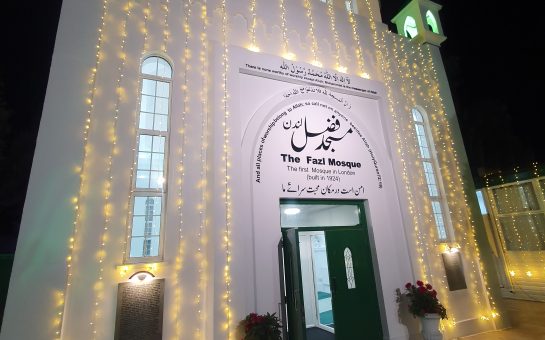The backlash against exam timetable changes to accommodate Ramadan highlights how divisive a lack of understanding of Islam can be, a south London Muslim leader told SW Londoner.
It was reported last week that GCSE and A-level schedules had been reshuffled, so exams in key subjects are before the Islamic holy month, so as to not disadvantage Muslim pupils fasting during that time.
The news sparked outrage from Christian Concern, which called it ‘just one instance of the ever-increasing demands of this highly prescriptive religion’, while some parents voiced concerns that the move could disadvantage pupils by cutting down on revision time.
But this isn’t something the Muslim community asked for says the general secretary of the Ahmadiyya Muslim Youth Association in south London, Farooq Aftab.
“There’s a lot of ignorance around about what Muslims do,” said Mr Aftab.
“If we do not remove the ignorance it causes divisions in society. That’s the key message we would like to impart,” he said.
He indicates that if the decision was made to avoid scheduling key exams during Ramadan, it may be a case of a well-intended but misguided gesture from the Joint Council for Qualifications (JCQ).
“Firstly, Islam doesn’t require children to fast. Once you feel you’re mature enough to fast, you decide to do it.” Mr Aftab explained.
“Secondly, in Muslim countries like Pakistan, timetables are not shifted to accommodate Ramadan.
“And thirdly, if someone feels they want to fast they should keep their normal routine.”
After the initial reaction to news that Ramadan was the reason for alterations to the timetable this year, the JCQ, a body comprising of the seven largest exam boards, issued a statement implying that this was not the case.
The JCQ said there had been a misunderstanding in how the exam timetable is set and the impact religious events have on it.
Talat Malik, secretary of Wimbledon Mosque, is unaware of any campaign from the Muslim community for schedules to be amended to accommodate Ramadan.
“I’m a bit confused as to who asked for it. From everything I’ve seen, heard and read, it looks like it was the teachers rather than anyone who is Muslim – not the kids or any of the parents,” said Mr Malik.
“You’re expected to carry out your daily life as usual during Ramadan – if you work, you go to work. If you’re at school, you go to school.”
Chief executive of Christian Concern, Andrea Williams, said: “The United Kingdom was built upon Christian principles, including a level of accommodation for other faiths.
“We must remember, however, that Islam doesn’t make the same kind of accommodation. The values of Islam and Christianity are, ultimately, not compatible.
“At some point we will have to choose whether we will maintain the freedoms passed down to us by our Christian heritage, or submit to the increasing encroachments of Islamic law.”
Mr Malik was shocked by the negative reactions to what he sees as a minor decision.
“It’s such a little thing and I was really surprised by the comments that I’ve heard – quite a lot of people were just completely against it, which is strange.
“Putting the exams earlier disadvantages everyone – whether they’re a fasting Muslim or not.
“They never should have used Ramadan as the reason for the movement anyway. It seems like they’re trying to backtrack now.
“If people had asked for the exams to be moved, that’s one thing, but if they have moved them of their own accord, they should have just kept quiet and no one would have ever questioned it.”
Fahim Akhter, chairman of the British Muslim Association of Merton, welcomed the changes, saying that it reflects the fact that we live in a multicultural society where all religions are treated equally.
“It’s a very good idea for children studying for GCSE and A-levels as it will help them and it shows that we are living in a society where all religions and cultures are respected,” he said.
Ramadan falls earlier by a few weeks each year and has been creeping into the exam period in May and June. In 2016 it will cover most of the exam period.
“There are obviously some people who think ‘It’s our country, it’s a Christian country’ – we need to educate them,” he added.
“There’s nothing wrong with changing the exam times and the people criticising it aren’t really giving a reason as to what’s so wrong with it – they’re just saying it’s unnecessary.
“But if there’s room to accommodate people in this way, I don’t think it’s a bad idea.
“And this is a very important reason – there are a lot of Muslims pupils who may find it hard to concentrate while fasting.”
A JCQ spokesperson said that exam boards will always aim to be as fair as possible to all.
“If a small change can be made for any one group that does not impact negatively on most students, it will, quite rightly, be considered,” the spokesperson said.
The JCQ also ruled out any possibility of changing the 2016 timetable, which it said was drafted over a year ago.
Picture courtesy of pete, with thanks




